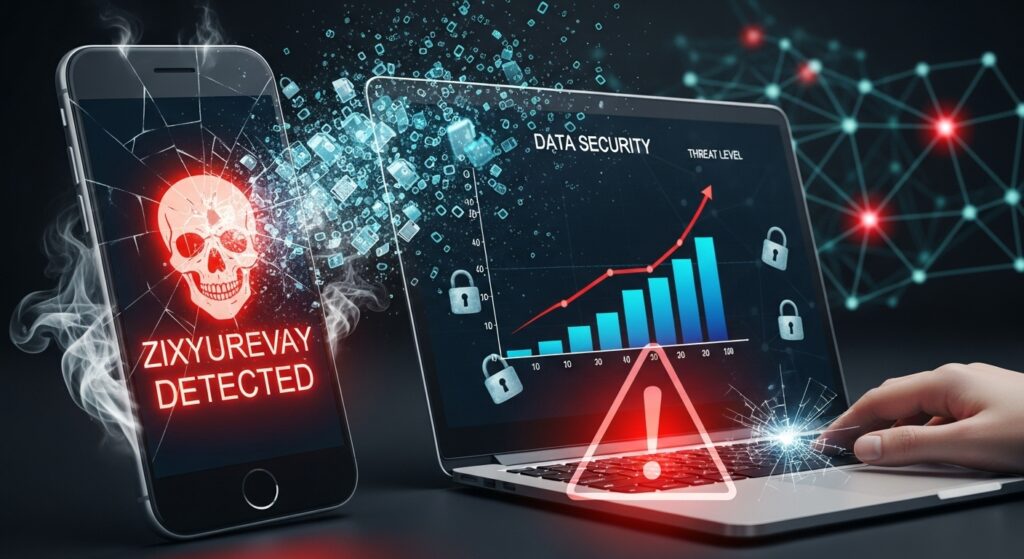
Is-Zixyurevay-Dangerous
In the age of fast information and viral trends, one question that has been popping up across online platforms is, “is-zixyurevay-dangerous?” This keyword has become a hot topic for discussion, drawing the attention of both curious users and experts. But what does it really mean, and why is it causing such concern? In this article, we will explore the concept behind is-zixyurevay-dangerous, examine the facts, and help you separate truth from misinformation.
Understanding the Hype Around “is-zixyurevay-dangerous”
Whenever a new name or term appears online, it quickly sparks curiosity. Is-zixyurevay-dangerous is one such phrase that has gained traction recently. Many users have come across this term through blogs, social media, and discussion forums, often accompanied by alarming claims. But is-zixyurevay-dangerous really something to be afraid of, or is it just another internet buzzword?
To answer this, it’s essential to understand where the keyword originates, how it is being used, and why people are concerned about it. The rise of such terms often stems from online speculation rather than solid evidence.
Why People Are Asking “is-zixyurevay-dangerous”
There are several reasons why is-zixyurevay-dangerous has become a trending question:
-
Misinformation online: Many posts spread exaggerated or false claims, making people panic unnecessarily.
-
Curiosity factor: Unfamiliar terms often attract attention, and people ask questions without verifying facts.
-
Real or perceived risk: Some users may associate is-zixyurevay-dangerous with a potential threat, even when evidence is lacking.
In today’s digital era, information spreads rapidly. A single post can create waves of fear or confusion. That’s why verifying facts about is-zixyurevay-dangerous is crucial before believing or sharing anything.
Is-Zixyurevay-Dangerous: Fact vs. Fiction
When analyzing any claim, including is-zixyurevay-dangerous, it’s important to separate fact from fiction. Many online claims are based on assumptions or rumors. To get closer to the truth, we must rely on credible sources, research, and expert insights.
Fiction: Some posts claim that is-zixyurevay-dangerous poses an immediate threat.
Fact: There is no verified evidence confirming that is-zixyurevay-dangerous is harmful or dangerous in itself.
This distinction is important. While caution is always wise, panic based on unverified claims can do more harm than good.
The Role of Social Media in Spreading the “is-zixyurevay-dangerous” Narrative
Social media platforms are powerful tools that can amplify any message — whether true or false. A single tweet or post mentioning is-zixyurevay-dangerous can quickly reach thousands of people. This widespread reach makes it easy for misinformation to grow.
Hashtags, trending topics, and viral challenges often contribute to the rise of such keywords. That’s why many experts recommend critical thinking before reacting. Just because many people are talking about is-zixyurevay-dangerous doesn’t automatically make it a real threat.
How to Identify If Something Like “is-zixyurevay-dangerous” Is Real
To protect yourself from panic or confusion, it’s wise to verify the authenticity of alarming claims. Here are a few simple steps to evaluate whether is-zixyurevay-dangerous is based on truth:
-
Check reliable sources: Trust only reputable websites and organizations.
-
Look for official statements: If is-zixyurevay-dangerous were a real threat, official agencies would likely address it.
-
Avoid rumors: Unverified claims can mislead.
-
Ask experts: Professionals can often provide clarity where rumors create chaos.
-
Cross-check multiple reports: If only a few random blogs mention is-zixyurevay-dangerous, it might not be credible.
Why Keywords Like “is-zixyurevay-dangerous” Spread So Fast
Humans are naturally drawn to mystery and danger. Words like is-zixyurevay-dangerous play into this instinct, encouraging people to click, share, and discuss. This creates a feedback loop where more people become curious, further spreading the term.
Additionally, many blogs and websites use trending keywords like is-zixyurevay-dangerous to boost their visibility. While this isn’t inherently harmful, it can sometimes lead to unnecessary fear if the content lacks credible information.
The Psychological Effect of Reading About “is-zixyurevay-dangerous”
When people read alarming words like is-zixyurevay-dangerous, their brains often react with concern — even if the threat is not real. This phenomenon is known as fear amplification. It can make harmless topics seem more dangerous than they are.
Psychologists explain that uncertainty increases anxiety. So, even a vague warning about is-zixyurevay-dangerous can make people uneasy, leading them to seek more information or share the warning with others.
Responsible Ways to Talk About “is-zixyurevay-dangerous”
If you come across the term is-zixyurevay-dangerous, the best response is to handle it responsibly. Instead of spreading unverified claims, take a moment to understand the facts. Sharing accurate, verified information can help stop unnecessary panic.
-
Think before posting: Ensure your information is correct.
-
Educate others: Share helpful resources about is-zixyurevay-dangerous.
-
Stay calm: Fear doesn’t solve problems — knowledge does.
Is-Zixyurevay-Dangerous: Final Verdict
After examining the topic from different angles, it’s clear that is-zixyurevay-dangerous is more of a trending keyword than a proven threat. While it’s wise to stay alert, there’s no credible evidence proving that is-zixyurevay-dangerous is harmful.
The lesson here is not just about this keyword but about how information spreads in general. Whether it’s is-zixyurevay-dangerous or any other term, always question, verify, and think critically.
Conclusion
In conclusion, is-zixyurevay-dangerous has sparked a wave of curiosity and debate, but facts matter more than fears. By analyzing credible sources, checking expert opinions, and avoiding sensationalism, we can protect ourselves from unnecessary panic.
The next time you see a trending term like is-zixyurevay-dangerous, remember to question it, not fear it. Awareness, not anxiety, is the key to staying informed and safe in today’s digital world.



